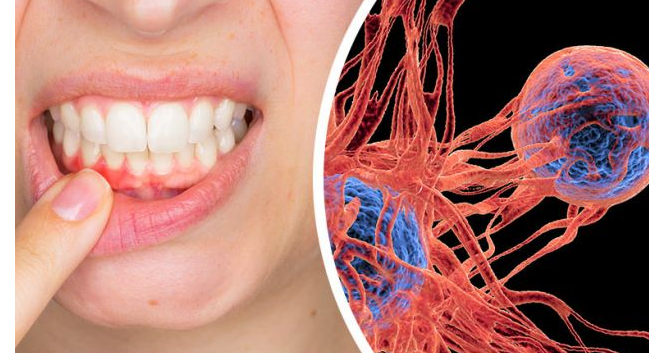The link comes down to a type of bacteria, Treponema denticola. This bacteria has long had a reputation as the villain behind gum disease. However, a research team from the University of Helsinki has found evidence Treponema denticola may also be linked to the development of some types of cancer.
Their study was first published back in November in the British Journal of Cancer, and found Treponema denticola shares an enzyme with some types of gastrointestinal cancers. The enzyme, dubbed Td-CTLP, has the potential to activate other enzymes known to be used by cancer cells to spread through the body.
Gum disease impact on the immune system
“In addition, our in vitro experiments provide evidence that Td-CTLP shows immunomodulatory activity that can have a crucial role in promoting and regulating carcinogenesis,” the authors explained. In other words, Td-CTLP doesn’t just activate cancer-linked enzymes; it also makes it harder for the body’s immune system to respond quickly.
“Because of its presence within tumors and regulatory activity on proteins critical for the regulation of tumor microenvironment and inflammation, the Td-CTLP may contribute to orodigestive carcinogenesis,” the researchers concluded.
In short, the bacteria behind gum disease could help cancer spread. However, the researchers didn’t stop there.
Matching theory with reality
At this point, the link between Treponema denticola and cancer remained theoretical at best.
So, the researchers carried out a second study to see if their theory matched reality. To start, they looked at whether there was any kind of link between cancer patients and the occurrence of gum disease. To do this, the researchers analyzed medical data from 68,273 adults over ten years. Their results were finally published last week, and don’t look good for anyone with gum disease.
They found a clear association between a patient being diagnosed with gum disease and later death by cancer. In particular, the link was strongest with pancreatic cancer. “A higher pancreatic cancer mortality among individuals with periodontitis contributed considerably to the difference in overall cancer mortality, but this difference was not due to pancreatic cancer deaths alone,” researchers explained.
At this point, you might think there could be some alternative explanation? Maybe there’s some other link between people with poor oral health and gastrointestinal cancer. Again, researchers tried to account for this. “We adjusted for effect of age, sex, calendar time, socioeconomic status, oral health, dental treatments and diabetes,” they said.
The only two big factors they couldn’t control were alcohol consumption and smoking — neither of which they had complete data on. The results, however, only made the link between gum disease and cancer clearer. “After adjustment, the results showed even stronger associations of periodontitis with increased overall [cancer]… and pancreatic cancer… mortality,” they found.
Brush your teeth!
While many details of this suspected link between gum disease and cancer remain unclear, this new research does underline the importance of good oral hygiene. Nearly half of all Americans over the age of 30 have some form of gum disease, ranging from mild inflammation to serious cases that can lead to teeth losses.
Gum disease usually starts as the more common gingivitis, which can make your gums bleed when you brush your teeth. Once your breath starts going downhill, that can be a sign the gingivitis has progressed to periodontitis, which means the disease has spread past the superficial gums and into bone. Your teeth get unusually sensitive and loose, gums grow sore and can even shrink. Experts say the best way to avoid gum disease is simple: brush your teeth, and brush them often.
Now if you’ll excuse me, I think I need to go spend some quality time with my toothbrush.
— Ryan Mallett-Outtrim

